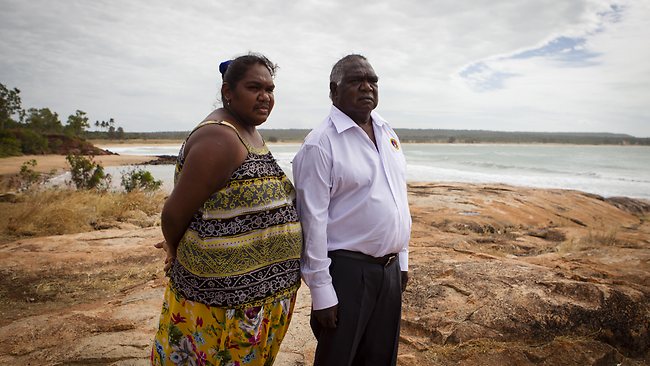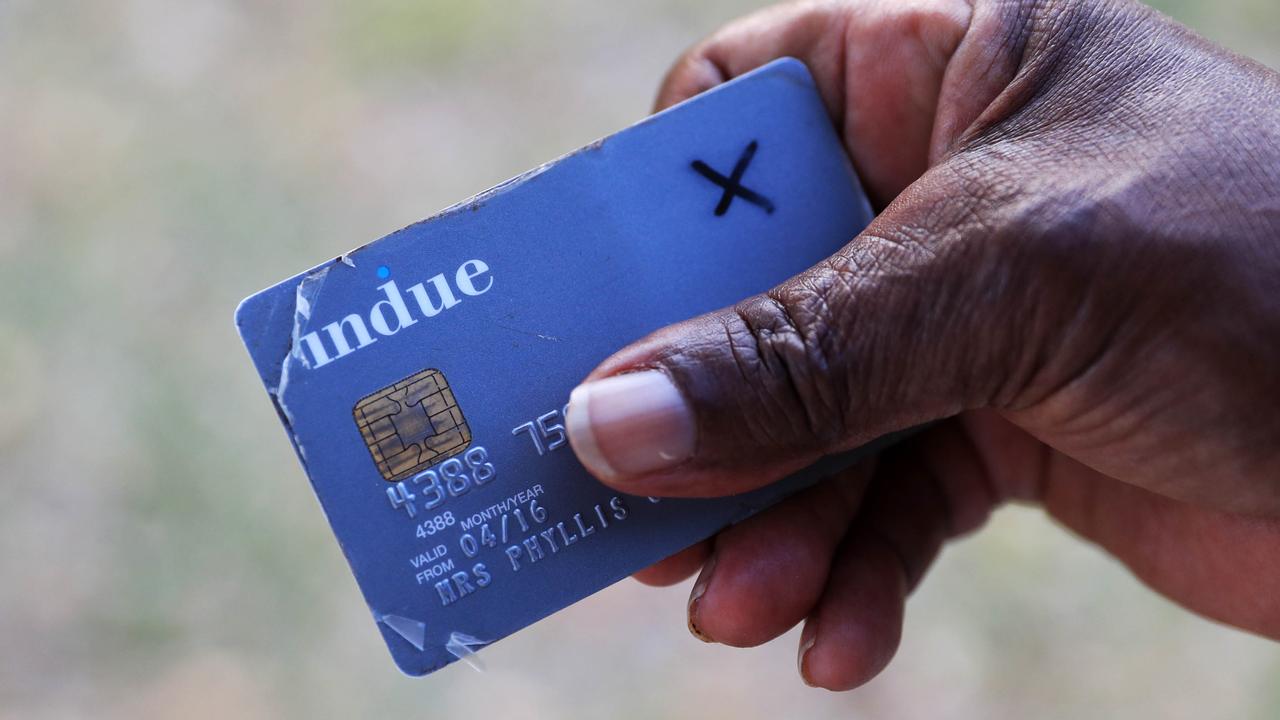Kevin Rudd misfires on indigenous recognition referendum
KEVIN Rudd is under fire for politicising the recognition of indigenous people in the Constitution.
KEVIN Rudd is under fire for politicising the recognition of indigenous people in the Constitution, with the Coalition accusing him of "calculated and dishonest" motives that could place at risk the success of a referendum.
Senior Liberal frontbencher George Brandis unleashed on the Prime Minister last night, saying he was engaging in "double-speak" after Mr Rudd accused Tony Abbott of stalling on the referendum as the two sides traded barbs over their commitment to Aboriginal recognition.
Northern Territory Country Liberal Party frontbencher Alison Anderson branded Mr Rudd's comments "childish" and out of place.
The brawl, which threatens to splinter a bipartisan approach to the issue, came on the same day the Prime Minister travelled to Arnhem Land for the 50th anniversary of the Yirrkala bark petitions, which paved the way for the indigenous land rights movement.
Mr Rudd, who apologised to the Stolen Generations in his first act as Prime Minister in 2008, accused the Opposition Leader of delaying the recognition of indigenous Australians in the Constitution. He called for a bipartisan approach and challenged "Captain Negative" to get his act together and spell out a position.
But Mr Abbott has long promised bipartisan support for the referendum and it was Labor under Julia Gillard that shelved a commitment to hold a referendum this parliamentary term, claiming more time was needed to build broad public support for any historic change.
The move came eight months after expert panel co-chairman Mark Leibler said the campaign for constitutional change was now "that much harder' after the violent Australia Day tent embassy protests last year.
Speaking in Yirrkala yesterday, Mr Rudd tried to shift the blame for a delay on to the Opposition Leader. "As Prime Minister, I want to see this matter brought to the people of Australia by referendum within two years of the election of the next parliament. And for that to happen, I want Mr Abbott to join in that journey with me.
"I want us to agree on the question to be put to the Australian people. No more delays, no more excuses, no more buck-passing. It is time that the nation got on with this business," he said.
"That is my commitment to you, the people of Yirrkala."
Earlier, he told ABC radio that bipartisanship was essential and if one side of politics was to "arc up", it would derail the process. He acknowledged Mr Abbott had so far "worked constructively on this".
Mr Abbott, who said yesterday recognising indigenous people in the Constitution "could be a defining, unifying moment for our country", has pledged to put forward a draft constitutional amendment within a year of taking office to establish a bipartisan approach to maximise the chances of success.
Senator Brandis, the Coalition deputy chairman of the parliamentary joint select committee set up to advise government on the referendum question and its progress, said "there has been no politics about this referendum until today when Kevin Rudd decided in a calculated and dishonest way to politicise it and then bizarrely make that accusation of Tony Abbott".
"What Mr Rudd said today is the first note of partisan disharmony to have been injected into this process from the start . . . his motives are obvious," he told The Australian.
"What Kevin Rudd is trying to do is use the referendum as a source of partisan division when the Coalition has from the very beginning and throughout the process observed a strictly bipartisan approach; obviously any referendum question that becomes the cause of partisan controversy is less likely to succeed."
The opposition yesterday accused Mr Rudd of overreach on his referendum comments following his missteps on asylum-seeker boat arrivals, when he claimed the Coalition's policy of turning back boats could lead to armed conflict with Indonesia and his assertion the opposition's economic policies would plunge Australia into recession.
Mr Abbott accused the Prime Minister of politicising the referendum, saying he had always strongly supported appropriate acknowledgement of indigenous Australians in the Constitution.
"We've been talking to the government repeatedly at this time and the problem at the moment is that the government has basically put the whole process on ice," Mr Abbott said.
"Let's face it, the government has been sitting on its hands here. The government was very slow bringing this thing forward. I think, rightly, given the fact that they've been so slow, they've decided to put the whole question on ice, but the last thing we should be doing is trying to politicise it.
"I suggest to Mr Rudd that if he wants a more positive polity, the last thing he should be doing is trying to politicise the vital question of indigenous constitutional recognition on which, in principle, everyone is agreed."
Ms Anderson, the NT's Aboriginal Advancement Minister, said Mr Rudd's comments were out of place given they were made at the 50th anniversary of the Yirrkala bark petitions.
"He politicised it and it wasn't the time and place for that," the former Aboriginal and Torres Strait Islander commissioner said last night. "The Coalition said that within the first year they would draft words for the referendum. It's a bipartisan decision by the Coalition and Labor and that he should politicise it at all is childish of him."
Last year, the expert panel recommended the Constitution be altered to remove racist sections and create power for the advancement of Aboriginal and Torres Strait Islanders and the protection of language and culture. It also called for a clause against racial discrimination.
The panel wanted the Constitution changed to empower the government to make laws for the "advancement" of indigenous Australians.
At the time, Mr Abbott expressed concerns that the recommended insertion of a clause to prohibit racial discrimination must not "turn out to be a one-clause bill of rights" but accepted the general thrust of the recommendations.
Labor believes if the Coalition had supported the expert panel's recommendations, it could have moved forward faster.
Retiring independent MP Rob Oakeshott, who lobbied for constitutional recognition as part of his minority government agreement with Ms Gillard, challenged whether the matter had enjoyed real bipartisanship.
"It is like pulling teeth to try to get both parties at the most senior level to sit down and even discuss that expert panels bunch of recommendations, let alone reach agreement on it," he said.
Mr Oakeshott, who said he believed Australians were ready to deal with the "open wound in our lead document", last night welcomed Mr Rudd's comments if they were designed as a "circuit-breaker . . . If this is a Prime Minister trying to resolve the issue around the detailed wording and treat this as an absolute priority for Australia to deal with, then I welcome it.
"If it's an exercise of trying to divide and conquer the Liberal and National parties, then that doesn't help anyone," he said.
Additional reporting: Lauren Wilson, Joe Kelly, Brendan Nicholson



